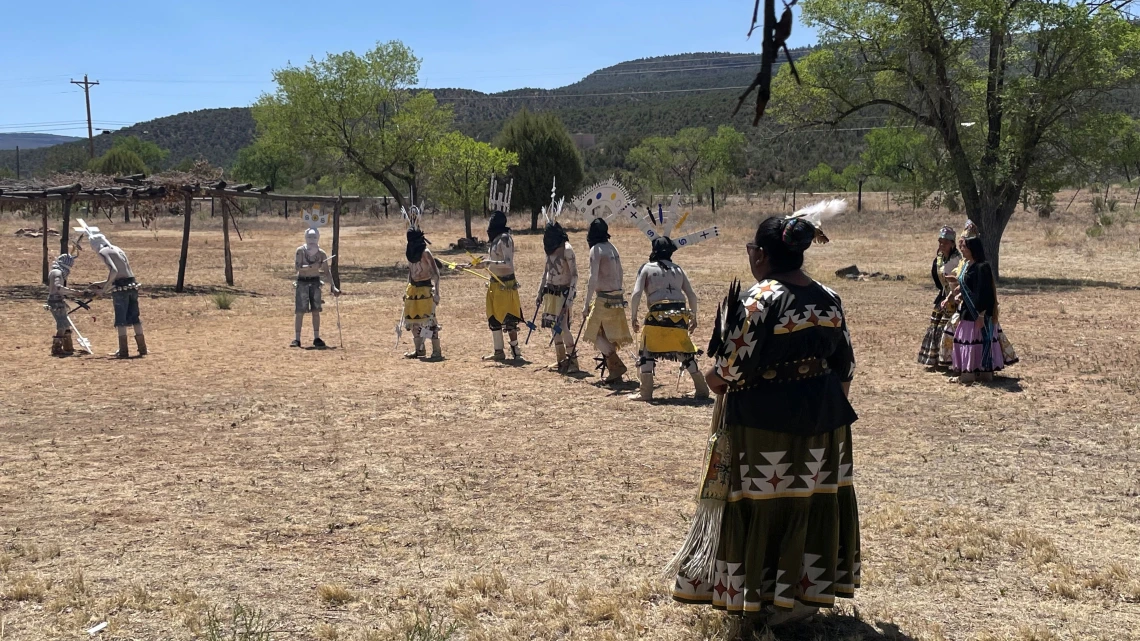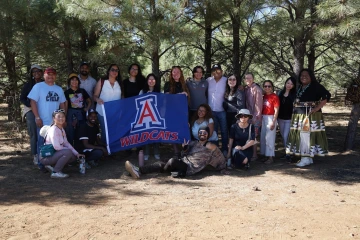Students explore Indigenous Arizona through hands-on cultural immersion program

Photo courtesy Xinrui Zeng
For many international students, cultural immersion means navigating campus life, academics, and adapting to a new country. At the University of Arizona, the CIELO Tribal Nations of Arizona program provides an opportunity to explore far beyond the familiar boundaries of campus and engage with the deep-rooted histories and living cultures of Indigenous communities in Arizona.
The CIELO program invites students on a week-long, immersive journey across Arizona. Participants engage directly with Indigenous communities, including the Navajo Nation and the White Mountain Apache Tribe. For Xinrui Zeng, a graduate student from China majoring in East Asian Studies, it was a firsthand lesson in community, resilience, and sustainability.
One of the most impactful moments for her occurred during a visit to a Navajo chapter house, where she learned about the infrastructure challenges, such as how building something as basic as a toilet can involve complex hurdles despite having available funding. “It struck me greatly,” she said. “It’s an issue I never got the chance to think about.”

Photo courtesy Xinrui Zeng
Beyond policy discussions and historical visits, the program offered personal and physical experiences, including helping at an Apache Sunrise Ceremony and participating in traditional foodways, such as butchering sheep and collecting agave for meals. “Unlike what is commonly practiced in the urban area where processed food ‘shows up’ from shelves in stores,” she said, “people in the tribal nations take from nature and give back to it.”
Zeng said the experience has reshaped her views on food, labor, and environmental stewardship. “Food waste is disrespectful to all the efforts behind it,” she noted, “and giving back to nature to sustain the life cycle in our environment is a great practice that all societies should learn from.”
Also on the trip was Noelle Sallaz, associate director of International Student Services, who emphasized the importance of connecting international students with the broader stories of the land they now call home. “The CIELO experience is truly transformative,” Sallaz said. “It not only deepens students’ understanding of indigenous histories but also creates a space for them to reflect on their own cultural identities and values. For international students especially, it’s a chance to learn the about the tribal populations in the U.S. beyond the stereotypes often portrayed in movies and pop culture.”
For Zeng, who also serves as a teaching assistant, the trip enriched her ability to practice mutual understanding and empathy. She strongly encourages other international students to join the program. “Many international students understand the country only through campus life and media. CIELO is unique because it allows us to learn directly from the people and landscapes of Arizona—it’s learning that goes beyond textbooks or even AIs.”
As she looks back on the journey, Zeng carries not only new knowledge but a lasting sense of gratitude: “I greatly appreciate all the hospitality of the people we met on this trip and hope there are ways we can give back.”

